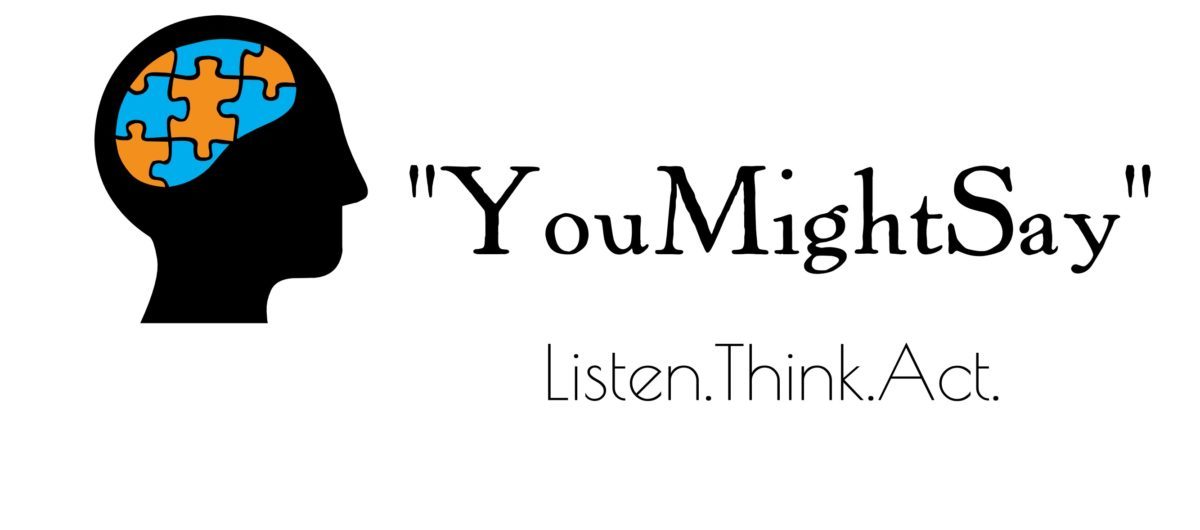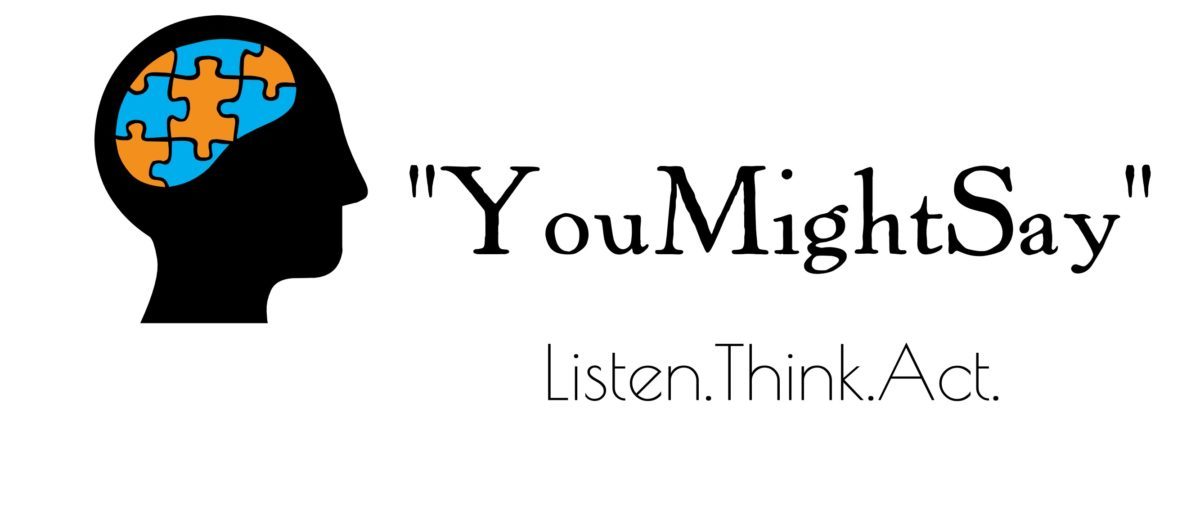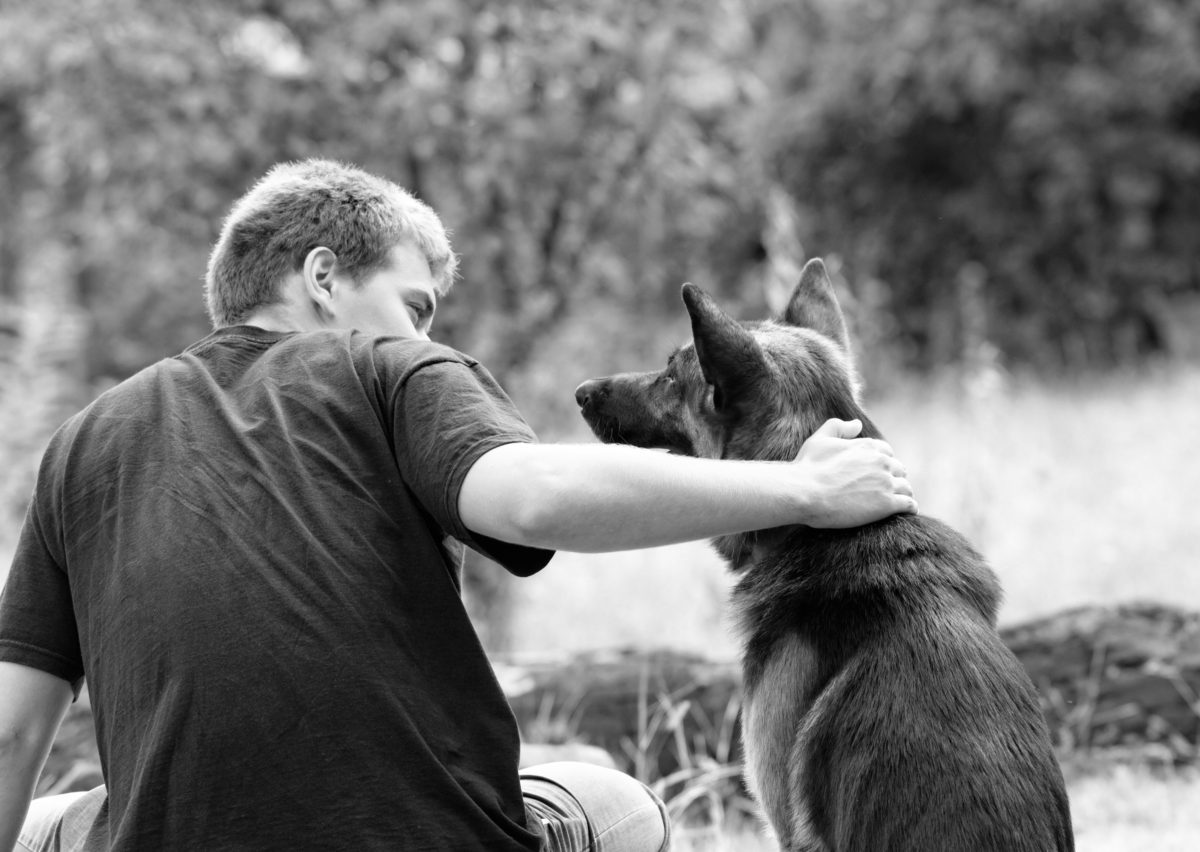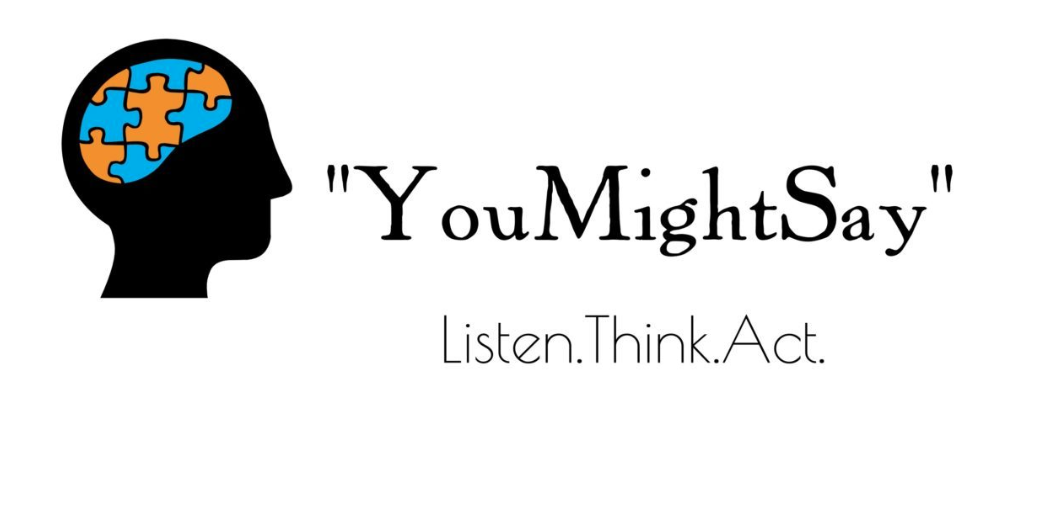
I spent my entire childhood growing up in the Southern United States. I was a child of the 1960’s and a teenager in the 1970’s. This was such a transformational time in our country. We landed on the moon, experienced the Viet Nam War and watched the Civil Rights Movement unfold. I witnessed the prejudices committed against people and the confusion that ensued from such acts. It begged the question, did I have the same prejudices? This blog is not intended to solve the obvious problems people have with each other, the objective is to shine a light on problems that have not changed since my early childhood. I hope to look at some of the reasons we have prejudices. I welcome your comments and thoughts on the matter.
First, let us see if we can agree on a definition for prejudices. This is the dictionaries explanation of prejudice: “Preconceived opinion that is not based on reason or actual experience.” If this definition is accurate, and it is “not” based on experience, then what is the basis? Ah, the first part of that definition uses the word “opinion”. Do some of the problems with prejudices stem from an incorrect opinion? I believe sensible people already know the answer to this question, and it is yes. Let’s assume for the sake of discussion the previous statement is true and we have incorrect opinions. Let’s try to examine things that affect our opinions and attempt to discover their connections to prejudices.
A logical examination of opinions might start with assumptions. We make assumptions every day and often are correct with these non-calculated predictions. Life is lived in patterns and can be very predictable at times. The patterns do not reveal much about a person, they just uncover some of their rituals, habits or schedule norms. We do ourselves and others a disservice when reliance on assumptions is treated as irrefutable facts. Prejudices can start with people relying on assumptions with little to no knowledge about the subject or the person. One problem is identifying when assumptions, surface in our interactions with people. These assumptions are so ingrained into our personalities and our thought patterns, identification of bad assumptions most likely will need to be from an external source. So, how can we examine our assumptions in a vacuum to determine if their tendencies lean toward a prejudice? I believe we must slow down and Listen.Think.Act, the slogan I use for this blog site. We overestimate the accuracy of our assumptions. We are wrong far more than we care to admit. If this is a true statement, then assumptions appear to be an inaccurate way to form opinions. The best opinions are formed over time and with a great deal of thought. Do not allow assumptions to foster feelings of prejudice.
There is an old adage that says: “We live and we learn”. The bulk of learning happens well before our teenage years. Even as adults we watch and emulate the things we try to learn. The process of watching to learn is so evident in small children. It stands to reason, that most prejudices are a learned behavior and this occurs primarily by watching people we love and respect. We can all remember times, in our early years when we watched our parents behaving poorly. Did they make racial slurs? Did they belittle another religion? Were they struggling with their own prejudices and trying to work them out as we observed? I often tell people I know there are some things in life I wish I could (pardon the incorrect language) unsee. The things we see, hear, speak and feel are an indelible part of our memory. These prejudices that we witness in others over time can slowly become a part of our behavior. To prevent developing prejudices, we must pick our friends carefully, develop conversations that respect others and be aware of how easily prejudices develop. We are teaching the next generation about civility and respect for individuals by our actions, this will not happen by chance.
It has been said: “We fear that which we don’t understand”. Many prejudices are based on misunderstandings and fear. The degree of friendship we enjoy with others is based partly on a willing attempt to understand and accept people. Have you ever been afraid of something you realized was irrational? The same things can exist in our stereotypes, phobias and of course the prejudices we carry each day. Some animals run in packs and so do human beings. We feel most comfortable around those that look, think and act in the same manner as ourselves. There are acceptable exceptions to the rules, but not many. I have befriended people of many races and religions over the years. Trying to find something we had in common was at times an exercise in futility. Yet, the one thing we did have in common was the acceptance of each other, without pre-conditions. I would love to say we are doing a better job with prejudices, but it is an anomaly to see it done correctly in society. So, how do we overcome the underlying fears we have of people that are different from our description of that which is normal? I think the first step is to realize they are human beings. They have goals, ambitions, and fears, and this is our common ground. We might eat different foods, worship a different God or have customs and traditions that are polar opposites. The commonality for most of mankind is the desire to be happy. Living in peace with one another is crucial to maintaining that happiness. Just remember accepting others as they are doesn’t mean you agree with them, you are just acknowledging their right to be themselves. Acceptance provides a world we all could live in peacefully.
The last thing I will discuss might be the most disturbing of all. Black Sabbath had a song years ago named: “The mob rules”. The news is riddled with constant examples today of mob mentality. I am not condemning peaceful demonstrations of injustices, they have ushered in great changes in our world. I am referring to angry demonstrations that are divisive and many times escalate to violence. A person cannot shout loud enough to intrigue people into listening. A great idea will stand on its own and violence will silence even the best message. Your idea is not correct because a group of people gathers to impose their will on another person or group of people. The civil rights movement in the 1960’s was effective utilizing marches that refused to use mob mentality. We all have a prejudice or two, this will become apparent with honest self-examination. You might have great ideas that need to be heard. Group mentality is not a bad thing, it can go sideways quickly if prejudices are the platform and peaceful dialog is not the focus. Gandhi almost single-handedly brought the British empire to its knees and he followed a non-violent agenda. Your idea should never impose an unfair equity on another’s civil rights as a human being. Be careful that your group associations represent the core value of your beliefs.
Some of my readers may have experienced the awful sting of prejudice. Race, religion, and gender make up just a few of the groups of people exposed to this terrible type of thinking. Will there ever be a day when prejudices are a thing of the past? Unfortunately, I think the answer to the question is no. It is only when we realize that our differences are really our greatest strengths. There is an old adage that states “If two people agree on everything, one of them is not needed.” To change prejudice, we must first change the way we think, and let our thoughts change our actions. I will leave you with a quote to ponder: “If someone is able to show me that what I think or do is not right, I will happily change, for I seek the truth, by which no one was ever truly harmed. It is the person who continues in his self-deception and ignorance who is harmed.”
― Marcus Aurelius, Meditations

I remember listening to the song “My Way” by Frank Sinatra as a young boy. The opening lyrics to the second stanza start out “Regrets, I’ve had a few but then again, too few to mention”. Maybe this is one of the great hindrances in our lives we seldom seem to address. How do we handle our regrets? Let’s start as we do many times by defining what regret is: “A feeling of sadness, repentance or disappointment, over something that has happened or been done.” Maybe we could define it as a memory of something we wish could be redone. The truth is we all have regrets and some are easier to live with than others. I want to take a look at a partial list of things people regret according to a poll in Forbes magazine. If you would like to read the full article here is the link: https://www.forbes.com/sites/ericjackson/2012/10/18/the-25-biggest-regrets-in-life-what-are-yours/#112823426488. I will not be addressing all 25 items but just a few select ones to hopefully inspire us to Listen. Think. Act.
- Working too much at the expense of family and friendships.
Working is a part of life, you might say a very big part of life. We might view work in a different light than others depending on our family history and the early years of life. Some people will tie a great deal of their self-worth to their work, others might see it as a necessary evil. Regardless of which camp you find yourself in, most of us probably agree it is a necessity. I have observed everything from workaholics to the hippies throughout my life. It is amazing how polar opposites work right beside one another every day. Do you identify with either of these two or somewhere in between? This question could provoke another question, “What do you value most?” People can experience regret when work takes an inordinate amount of their time. This time thief replaces picnics, walks on the beach and occasionally vacations. Sometimes this is necessary, other times it is self-induced. So why do we feel the gnawing pain of regret? I referenced the “Hippies” in the earlier part of this paragraph. Most of us have a stereotypical view of this carefree individual. Yet, there is a part of their lifestyle we might envy if we are honest with ourselves. The hippie seems to be easily pleased, therefore needs less in life to survive. I talk to my children often about balance in life. It is tempting when we find something new such as a job, hobby or relationship to pour the lion’s share of our time into our “new found love”. Often, in the future, we feel regret for letting things go, ignoring relationships or just becoming too self-absorbed in this particular case with our work. There are many things that vie for our attention on a daily basis. Our jobs are a necessary part of life, just guard against letting it consume all of your time. We ignore family and friends to our own detriment. Do you feel the regret of working too much?
- Standing up to bullies in school and in life.
This is a shift from the first topic but one that affects many people. A great deal of attention in recent years has focused on the subject of bullying. Most of the bullying conversations have been centered around “Cyber Bullying”. Social media has provided many benefits and simultaneously ushered in a new era for potential bad behavior. If you had to describe a bully, what would your definition include? Is someone that likes to debate a bully? Is someone that possesses confidence in themselves a bully? Have we distorted the characterization so ridiculously that bullying could actually be anyone that disagrees with you openly? I looked up the government website on bullying and pulled some information for this blog from the following site https://www.stopbullying.gov/what-is-bullying/index.html. The government describes bullying as unwanted, aggressive behavior among school-aged children that involve a real or perceived power imbalance. Of course, this can happen to anyone at any age but is primarily experienced with children. Have any of you experienced being bullied in your childhood? For some people, this memory not only invokes feelings of regret but also anger. ” I should have stood up for myself” is a regret you might feel, and even verbalize to other people. The first point I would like to make about regret is how powerless we are to change the past. We all know hindsight is 20/20, and regret can bring feelings of frustration and discontent. The first thing we can do with regret is to embrace the life lessons they teach us. You may have been bullied, which is a terrible thing for anyone to experience. Do not allow this to control your life, or it can perpetually lock you into a moment of time. Your past helplessness can infiltrate the life you live today and continue on into the future. You cannot help the feeling of regret for some things in life but you must decide the power you will give it.
- Worrying about what others think.
This is a topic that is more about “reputation”. An honest assessment of yourself would be incomplete without at least taking a cursory look at your reputation. Some people appear to be exempt from this form of regret. For the rest of us, we might have committed a faux pas that has changed the way people perceive us. I am very leery of anyone that says they do not care what others think of them. We might not be overly concerned, it might not dominate our decision making, but to say it has no impact is suspicious at best. As humans, it is a natural desire to get along well with other people. When that appears to be impossible, it is quite normal to turn our analysis inward and question our actions, speech, and motives. Relationships will change for a variety of reasons. The cause of these fissures can be a misinterpreted action, a word spoken out of turn or possibly loss of contact with a person. During moments of nostalgia, we might experience regret for the loss of a close relationship. It is an interesting fact that experts tell us it is impossible to maintain more than 150 friendships. I am not saying we cannot know more than 150 people but we cannot maintain a relationship with them. For those of you on Facebook, take a look at your friend’s list. More than likely some of the people on the list should go into a category named “acquaintances”. Friends vs. Acquaintances is an interesting subject that could support its own blog post. My point I am steering towards is “People will have an opinion and you have only a small part in determining it”. Regret should be saved for the things you have direct control over, not someone’s opinion. I hope my statement is not misconstrued. We should always strive to be the best person we can in our relationships with others. Yet, it is paramount to do the right thing regardless of others opinions. If we are true to ourselves and our core values we will have less regret in our lives. If your compass is off, then correct it back to true north. If people’s opinions are not in line with your core values, maybe you need different friends. Value other’s opinions, but in the end, you are the one that will live with your decisions, not them.
- Having more confidence in myself.
This could be written in a series of blog posts, I will try to give you an overhead view of the subject. The quiet confidence of a person does not stem from ability alone, it exudes from the inner peace of self-acceptance. This is not a new age, let’s all love everyone at all times writing. Still, we have to look at something from a different viewpoint or we will continue to see the same thing each time. As we look back over our lives we can recall times when confidence in ourselves was low. This can be for a variety of reasons. A question to ask at this point might be “What is the source of my confidence”? We are born with natural abilities (Abilities that require very little work for success), by the same token we are born with weaknesses (Abilities that may never develop fully). The things we love to do (which primarily coincides with our strengths) are great tools for improving our confidence. Society places pressures on people to have a perfect body, a lucrative financial portfolio and have an insanely organized life. Goals are a necessary part of life. There is an old adage that states: “If you shoot at nothing, you will hit it every single time.” Goals must be realistic and achievable, they also should support the life we desire. Do not try to live someone else’s life. Although some of us have similar talents, we are all different instruments in the orchestra of life. When you set goals then ask yourself “What do I want to accomplish in my life?” Does your answer align with your talents? Are you afraid of failing? Many things affect our confidence and if left unanswered will produce regrets. Operate in your strengths, do not look to others for your confidence, they do not possess what you are looking for nor what you need. These answers will be found when you come to terms with your own identity. Finally, do not fear your difference with others. We are all uniquely made and this should provide added confidence to truly be ourselves.
- Spending time with the people you love. I have to confess this topic was going to be about spending time with your children. After some quick thought, I have decided that this regret is real for anyone that loves deeply. Life is busy and many times our obligations can be overwhelming. “How are you spending your allotted time with people you love?” I am not talking about time management. I am asking “Are you present with the person you love when you are with them”? Mindfulness addresses this very subject. I will not attempt to address the plethora of things that constantly vie for our attention. Do you listen more than you talk? When you listen are you thinking of the next thing you want to say? Try letting the conversation progress where it needs to go. If you will do this, your relationships will be more satisfying and will produce far less regret. You will long for the other’s company. It will cease to be another item on your to-do list. Eliminate the guilt and spend quality time with people. Put away your cell phone. Turn off the television. It is permissible to have quiet distraction-free conversations. You can collect many things in life, money, land, coins and the list is endless, but you cannot collect time. Each minute is spent equally with or without your permission. Take a moment after you read this blog and talk with someone you love. Give them your full attention and show interest in what they are saying. We have limited time with each other, cherish the time you have together. “A man who dares to waste one hour of time has not discovered the value of life.”
― Charles Darwin, The Life & Letters of Charles Darwin
In conclusion, we have many opportunities for regret. Will giving regret a foothold in our life changes anything that has been done? We know we cannot change the past, yet we hold on to the guilt and regret. I have often told my friends “There is no perfect life, there is just life.” The beauty of life and the heartaches all come in one package. Mistakes are learning tools, they should be treated as such. If you have regret and most of us do, what lessons have you learned from them? If we continue down the same road we should anticipate arriving at the same place. Today, let go of the regrets and live the life you have always wanted. Don’t look at others with envy, celebrate your uniqueness and use your talents to help your fellow man. I will leave you with a final quote that I believe summarizes this blog very well: “Make it a rule of life never to regret and never to look back. Regret is an appalling waste of energy; you can’t build on it; it’s only good for wallowing in.”
― Katherine Mansfield



With all the distractions of today’s world, it’s easy to lose sight of what makes life so wonderful. It seems we are so eager to find things that take our mind off the here and now. Cell phones, video games, TV shows, and social media; the list goes on and on. Here are a few everyday opportunities to enjoy the present world around you.
The Power of the Golden Hour
The transitional period just after sunrise and right before sunset is known as the Golden Hour. It is well known in the photography world as a prime time for wonderful portraits and landscapes given the natural light is softer and redder than at any other time in the day. You don’t have to be a photographer to soak up the brilliant lighting and alluring aesthetics of the Golden Hour. Take the time to enjoy a cup of coffee or tea on a bench and take note of your surroundings. Chances are they look a shade or two more inviting than usual, all thanks to a little bit of phenomenal lighting.
Unravel with a Joyride
Life can get the best of us sometimes. When the stress comes to a head and you truly need a break, take a joyride. I’m a firm believer in a few requirements for joyrides:
- Don’t drive with a destination in mind, the purpose is the drive itself.
- Weather providing, windows should be down.
- If you are with company, keep talking to a minimum.
- A designated playlist or album is a must!
Take this time to enjoy the drive, whether it be on backroads or city blocks there is always something new to find when you go wandering instead of simply commuting. Is that an old antique shop? Wonder where this road goes? You’re in the Captain’s Chair. Make sure you bring a map, just in case.
Purposeful Idle Time
People love schedules and planning. Ensure that you pencil in some idle time at some point during your daily routine. Use this time in whatever manner suits you, just make sure you actually use it. Maybe some quiet breathing exercises or meditations can help you invigorate your morning while a crossword and some chai can aid you in unwinding from your workday. Whatever way you see fit, see to it that you find some time to simply pass the time. Ideally, this will be sans TV’s and touchscreens, but if watching a few DIY videos from your favorite blogger helps you feel refreshed, go for it.
How do you recharge?
Distractions can be a very good thing when stress bogs us down. We can choose to be more mindful of the breaks we take from work or school and be cognizant of the wonderful world around us instead of hiding from it behind screens of all sizes. What are some of your favorite ways of escaping the stress and enjoying the present world around you? How does it help you?
Written by Patrick Hicks

I am reading Greg McKeown’s book “Essentialism, The Disciplined Pursuit of Less”. This is how he describes choice. “When we surrender our ability to choose, something or someone else will step in to choose for us.” I have told my children for years that “no choice” is a choice, the decision is made for you. Some choices are harder than others to make. I believe in the method this blog promotes, Listen.Think.Act. It is not enough to research something or listen to good advice. Eventually, we all have to act. Don’t let someone else make your choice for you today. Listen to people you trust and are credible in the area of the decision. Think about the pro’s and cons, in fact, write them down so you can visually see them. Give yourself time to process the information. Finally, act on your choice. Do not stay at this point any longer than is needed. Regrets often come from our lack of action. What choices will you make or will be made for you today?

Are people really happy to see you or do they just say it to be nice? What do you bring to a relationship? I heard a joke a while back that says “Lock your best friend and your dog in the trunk of your car. When you get to your destination, open the trunk and see which of the two are happy to see you”. I realize this is ludicrous but the point is well taken. Dogs only want to love and be loved. They don’t have a hidden agenda. They just want your love, attention, and company. Look at a dog today. We can learn a lot about relationships from our favorite pets. Love and be loved.


Originally published at youmightsay.com


